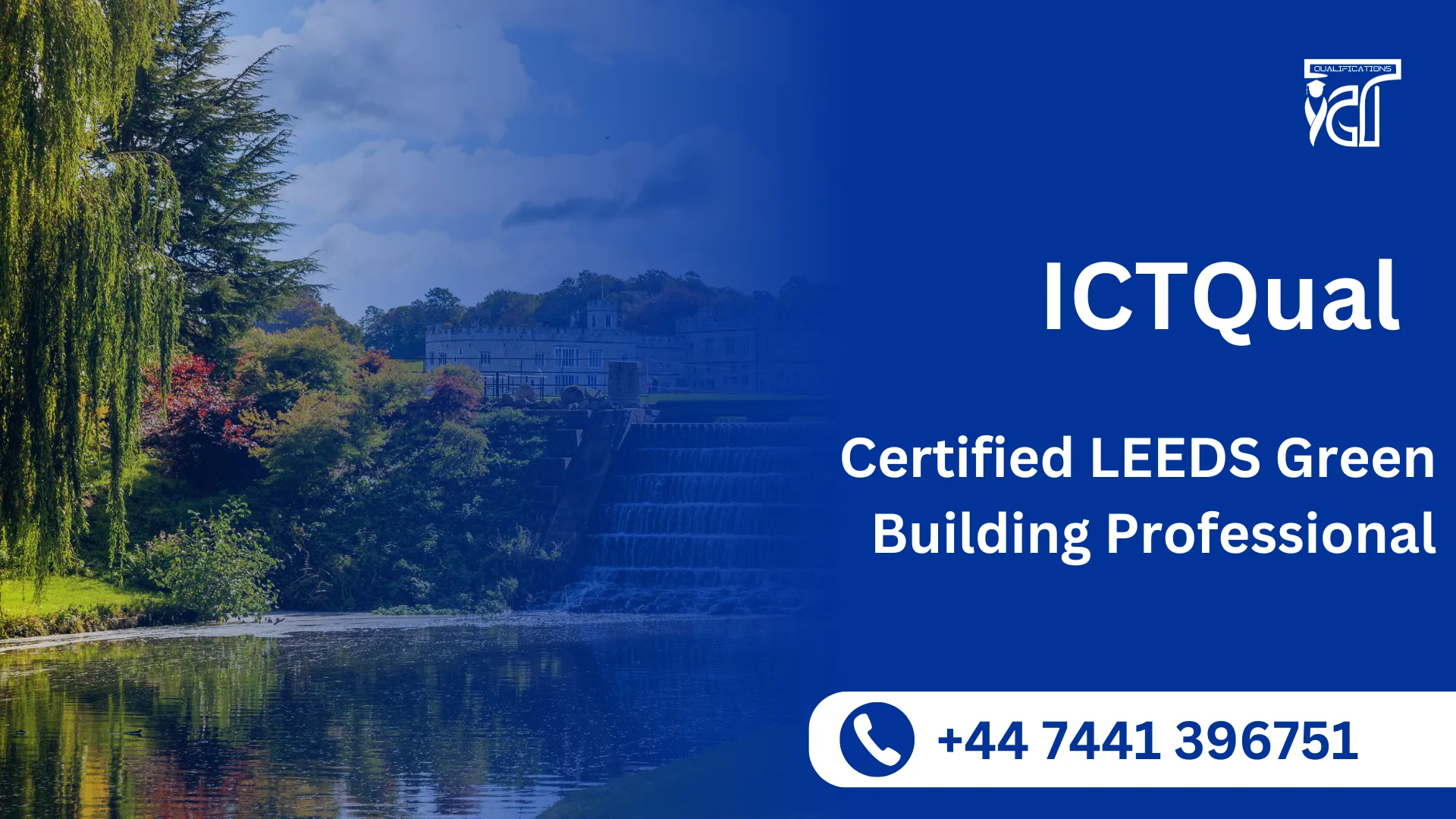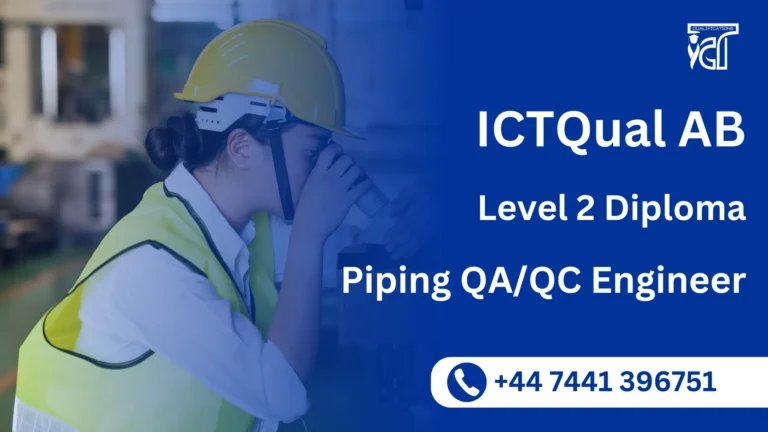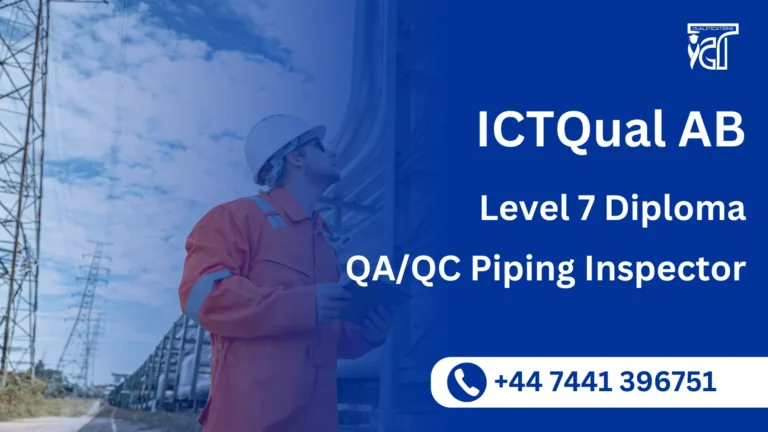As the world moves towards sustainable living and energy-efficient practices, green buildings are becoming an essential part of the future of construction. If you’re passionate about sustainability and wish to make a significant impact in the built environment, the ICTQual Certified LEEDS Green Building Professional course is your perfect starting point.
This globally recognized qualification equips you with the knowledge and practical skills needed to manage and oversee sustainable building projects that contribute to environmental conservation. Whether you’re looking to enhance your career or venture into the growing field of green building management, this certification offers the expertise necessary to succeed.
The ICTQual Certified LEEDS Green Building Professional course is a specialized qualification designed for individuals seeking to work in sustainable building management. This course covers the principles and practices involved in the creation, maintenance, and operation of green buildings. It focuses on sustainability, energy efficiency, and environmental responsibility throughout the building lifecycle—from design and construction to operation and decommissioning.
The certification provides participants with a comprehensive understanding of LEEDS-focused building practices. These include reducing energy consumption, optimizing resource usage, and integrating innovative, eco-friendly technologies into building projects. The qualification is Ofqual-regulated, ensuring that it meets the highest educational standards and is recognized globally.
The ICTQual Certified LEEDS Green Building Professional course is designed to offer a deep dive into the principles of sustainable building management. The program covers a wide range of topics to ensure that professionals are well-equipped to manage green building projects from start to finish, ensuring they meet global sustainability standards.
The ICTQual Certified LEEDS Green Building Professional course is a valuable investment for those looking to build a career in the rapidly growing green building and sustainability sectors. By obtaining this globally recognized, Ofqual-regulated certification, you’ll gain specialized knowledge in sustainable building management and energy efficiency, positioning yourself as a leader in the industry.
Start your journey towards a greener future and take the first step in your career as a Certified LEEDS Green Building Professional today. Make a lasting impact on both your career and the environment.
ICTQual Certified LEEDS Green Building Professional
This qualification, the ICTQual Certified LEEDS Green Building Professional, consists of 5 mandatory units.
| Sr# | Unit Title |
|---|---|
| 1 | Introduction to Green Building Concepts |
| 2 | Sustainable Site Development and Water Efficiency |
| 3 | Energy and Atmosphere Optimization |
| 4 | Materials and Resources Management |
| 5 | Indoor Environmental Quality and Innovation |
GLH (Guided Learning Hours) and TQT (Total Qualification Time) are terms commonly used in vocational qualifications to help define the amount of time a learner is expected to spend on their studies.
1. GLH (Guided Learning Hours)
GLH refers to the number of hours a learner spends being directly taught, supervised, or supported during their course. This includes the time spent in activities such as:
- Classroom instruction
- Practical workshops
- One-on-one tutoring or mentoring sessions
- Online learning sessions with tutor support
In other words, GLH represents the time that learners are actively engaged with their instructors or learning activities.
2. TQT (Total Qualification Time)
TQT represents the total amount of time a learner is expected to invest in completing a qualification, including:
- GLH (Guided Learning Hours): Time spent on direct learning, as explained above.
- Self-Directed Learning: This includes time spent on independent study, research, assignment completion, preparation for exams, and any other work the learner does outside of direct teaching hours.
TQT is a broader measure that includes all the time required to achieve the qualification. It helps learners and employers understand the overall commitment required for the qualification.
Key Differences Between GLH and TQT:
- GLH focuses on direct learning with guidance or supervision.
- TQT includes GLH as well as independent study time and other learning-related activities.
Example:
If a qualification has a TQT of 600 hours and a GLH of 250 hours, it means the learner should spend 250 hours in direct learning (classroom, online, or tutor-led sessions) and 350 hours on independent study or research.
Learning Outcomes for the ICTQual Certified LEEDS Green Building Professional:
Introduction to Green Building Concepts
- Understand the fundamental principles of green building and sustainability.
- Recognize the environmental and economic benefits of green building practices.
Sustainable Site Development and Water Efficiency
- Evaluate strategies for sustainable site development and their impact on the environment.
- Understand methods for optimizing water use and managing water efficiency in buildings.
Energy and Atmosphere Optimization
- Learn how to reduce energy consumption and improve energy efficiency in buildings.
- Understand the role of renewable energy sources and their integration into building systems.
Materials and Resources Management
- Identify sustainable materials and resources used in green building projects.
- Apply techniques for reducing waste and improving resource efficiency in construction.
Indoor Environmental Quality and Innovation
- Understand the importance of indoor air quality and occupant well-being in green buildings.
- Explore innovative strategies for improving the indoor environmental quality of buildings.
Benefits of the ICTQual Certified LEEDS Green Building Professional Course
The ICTQual Certified LEEDS Green Building Professional course offers numerous benefits at an international level, particularly for professionals in the construction, architecture, engineering, and environmental industries. As global demand for sustainable building practices continues to rise, this qualification provides a competitive edge that transcends borders. Here are the key international benefits of earning the ICTQual Certified LEEDS Green Building Professional certification:
1. Global Recognition of LEED Certification
- LEEDS (Leadership in Energy and Environmental Design and Sustanibility) is the most widely recognized green building certification system in the world. By earning the ICTQual Certified LEEDS Green Building Professional qualification, you gain access to a globally respected credential that is recognized by employers, organizations, and governmental bodies across different continents. This recognition opens doors to career opportunities in sustainable building projects anywhere in the world.
2. International Career Opportunities
- Sustainability is a key focus in construction and development across the globe. With this ICTQual LEEDS Green Building Professional qualification, you can pursue career opportunities with international companies, including multinational construction firms, design consultancies, and real estate developers involved in green building projects. LEEDS-certified buildings are in high demand in major cities and emerging markets, and professionals with expertise in LEEDS certification are sought after in regions such as North America, Europe, Asia, and the Middle East.
3. Enhanced Professional Marketability
- As countries and organizations worldwide strive to meet climate goals, sustainable construction is a priority. The ICTQual Certified LEEDS Green Building Professional qualification ensures that you stand out in the competitive global job market. It demonstrates your proficiency in sustainable building practices and showcases your ability to implement global green building standards, making you a more attractive candidate to international employers.
4. Global Sustainability Standards
- The ICTQual LEEDS Green Building Professional course equips you with an understanding of the universal standards and practices for building sustainability, particularly those set by LEEDS. These global standards help you contribute to building projects that reduce environmental impact, improve energy efficiency, and enhance indoor environmental quality — all of which are vital for projects worldwide. Your knowledge of LEEDS principles will allow you to work in various countries with different sustainability regulations and requirements.
5. Cross-Border Networking Opportunities
- With the international recognition of this certification, you will join a global community of LEEDS professionals. This offers valuable networking opportunities with other experts in the sustainable building sector, allowing you to collaborate on global projects, share knowledge, and stay up-to-date with the latest innovations in green building technologies. The ICTQual Certified LEEDS Green Building Professional course connects you to industry leaders and organizations working towards a common goal of promoting sustainability worldwide.
6. Compliance with International Environmental Regulations
- Many countries have adopted strict environmental standards and regulations that align with LEEDS certification or similar sustainability frameworks. By obtaining the ICTQual Certified LEEDS Green Building Professional qualification, you demonstrate your ability to ensure compliance with international environmental regulations in building projects. This is particularly important when working on large-scale international developments where adherence to local and international sustainability standards is essential.
7. Sustainable Development in Emerging Markets
- Emerging markets in Asia, Africa, and Latin America are rapidly expanding their focus on green construction and sustainable urban development. The ICTQual Certified LEEDS Green Building Professional qualification enables you to tap into these growing markets, where the demand for LEEDS-certified buildings and sustainable construction practices is increasing. Professionals with expertise in green building are essential in helping these regions meet their environmental and development goals.
8. Better Impact on Global Environmental Goals
- As the world faces growing challenges related to climate change and resource depletion, sustainable building practices play a crucial role in addressing these issues. By becoming a Certified LEEDS Green Building Professional, you contribute directly to global efforts to reduce carbon emissions, improve energy efficiency, and promote responsible resource use. This qualification empowers you to make a tangible impact on environmental sustainability at a global scale.
9. Increased Earning Potential Internationally
- As sustainability continues to be a top priority in the global construction and real estate industries, professionals with green building qualifications like LEEDS are in high demand. The ICTQual Certified LEEDS Green Building Professional qualification can significantly enhance your earning potential. International employers are often willing to offer competitive salaries to professionals with specialized skills in green building certification, as these experts are instrumental in driving the success of environmentally responsible projects.
10. Contribution to Global Green Building Projects
- The skills and knowledge gained through the ICTQual LEEDS Green Building Professional course allow you to work on and contribute to high-profile green building projects worldwide. From skyscrapers in New York City to sustainable resorts in the Maldives, your expertise in LEEDS certification positions you to be an integral part of projects that have a positive environmental and social impact across the globe.
ICTQual Certified LEEDS Green Building Professional Course Best Suited For:
The ICTQual Certified LEEDS Green Building Professional course is ideal for professionals in the construction, architecture, engineering, and environmental sectors who are looking to enhance their skills and knowledge in sustainable building practices and green certifications. The course is designed for individuals who want to make a significant impact in the growing field of green building and contribute to sustainable development projects globally. Below are the key groups who would benefit most from this qualification:
1. Architects
- Architects looking to specialize in green building design and sustainable construction practices will benefit from this course. Understanding LEEDS standards is essential for designing energy-efficient, environmentally friendly buildings, and this qualification will provide the knowledge to ensure your projects are compliant with LEEDS certification.
2. Construction Managers and Project Managers
- Construction Managers and Project Managers responsible for overseeing building projects will find this course invaluable. It will equip them with the skills to manage and implement LEEDS certification processes, ensuring that projects meet sustainability standards while managing resources efficiently.
3. Engineers (Mechanical, Electrical, and Civil)
- Engineers who want to deepen their expertise in sustainable design and environmental systems will benefit from this certification. This course provides the technical understanding required to integrate renewable energy systems, energy efficiency, and sustainable material usage into building projects.
4. Sustainability Consultants
- For Sustainability Consultants, this course provides an in-depth understanding of the LEEDS certification process and green building practices. By gaining this qualification, consultants can enhance their ability to advise clients on how to achieve LEEDS certification and meet sustainability goals in construction and building operations.
5. Facilities Managers
- Facilities Managers who oversee the operation and maintenance of buildings will gain valuable insights into how to optimize energy usage, improve indoor air quality, and manage waste effectively. This certification helps facilities managers ensure that their buildings meet global sustainability standards and LEEDS criteria, improving overall environmental performance.
6. Real Estate Developers and Property Owners
- Real Estate Developers and Property Owners looking to invest in sustainable, energy-efficient buildings will find this course beneficial. LEEDS-certified buildings are increasingly in demand by tenants, and gaining this certification will give developers and property owners a competitive edge in the marketplace.
7. Government and Public Sector Employees
- Government employees and professionals working in public sector projects focused on urban development, public infrastructure, or environmental policy will find this course essential for understanding how to incorporate LEEDS standards into public building projects, helping meet national and international sustainability targets.
8. Environmental Advocates and Activists
- Environmental advocates and activists who are passionate about promoting green practices in construction will benefit from this course by gaining the technical and certification knowledge needed to help drive sustainability initiatives within the construction industry. This qualification will provide them with the tools to influence policy and practice at a global scale.
9. Career Changers
- Career changers looking to enter the growing green building sector will find the ICTQual Certified LEEDS Green Building Professional qualification an excellent entry point. With the increasing demand for sustainability expertise, this certification provides a strong foundation for those transitioning into the field of sustainable construction and green building management.
10. International Professionals Seeking Global Opportunities
- This course is ideal for professionals looking to pursue a career in green building practices not just locally but globally. Since LEEDS certification is recognized worldwide, this qualification opens up international career opportunities in countries and regions that are leading the way in sustainable development, including North America, Europe, Asia, and the Middle East.
Entry Requirements
Register Now
Qualification Process
Qualification Process for the ICTQual Certified LEEDS Green Building Professional
- Self-Assessment:
Begin by evaluating your eligibility to ensure you meet the qualification requirements, including work experience, knowledge, and language proficiency. - Registration:
Complete your registration by submitting the required documents, including a scanned copy of a valid ID, and paying the registration fee. - Induction:
An assessor will conduct an induction to confirm your eligibility for the course and explain the evidence requirements. If you do not meet the criteria, your registration will be canceled, and the fee will be refunded. - Assignmnets & Evidence Submission:
Provide all assignmnets and the necessary evidence based on the assessment criteria outlined in the course. If you are unsure of the required evidence, consult with the assessor for guidance on the type and nature of evidence needed. - Feedback and Revision:
The assessor will review your submitted evidence and provide feedback. Evidence that meets the criteria will be marked as “Criteria Met,” while any gaps will be identified. You will be asked to revise and resubmit if needed. - Competence Evidence:
Submit final evidence demonstrating that all learning outcomes have been met. This evidence will be marked as “Criteria Met” by the assessor once it is satisfactory. - Internal Quality Assurance (IQA):
The Internal Quality Assurance Verifier (IQA) will review your evidence to ensure consistency, quality, and compliance with standards. - External Verification:
The IQA will submit your portfolio to ICTQUAL AB External Quality Assurance Verifiers (EQA) for final confirmation. The EQA may contact you directly to verify the authenticity of your evidence. - Certification:
Upon successful completion of all checks, ICTQUAL AB will issue your official certificate, confirming that you have attained the ICTQual Certified LEEDS Green Building Professional.







